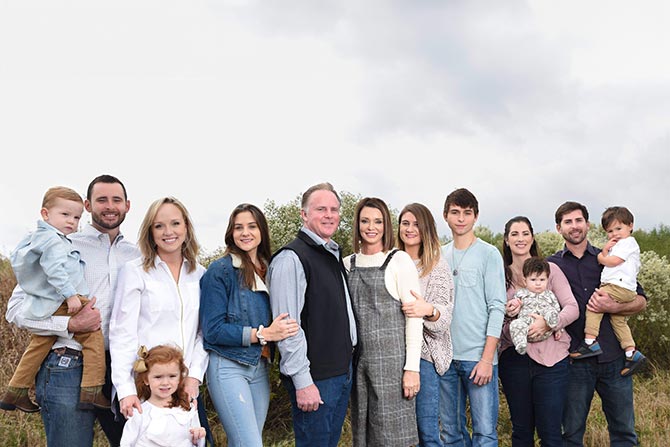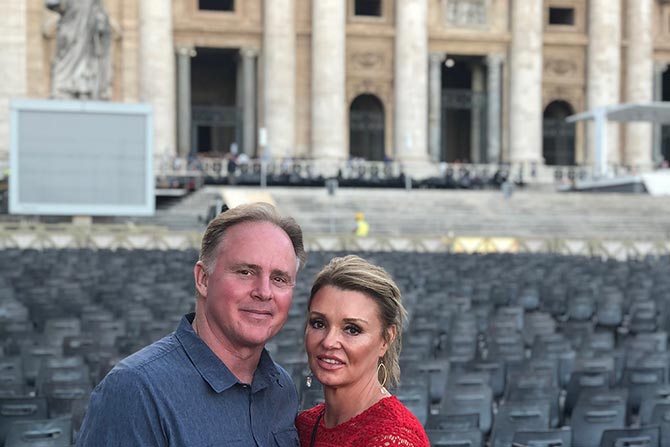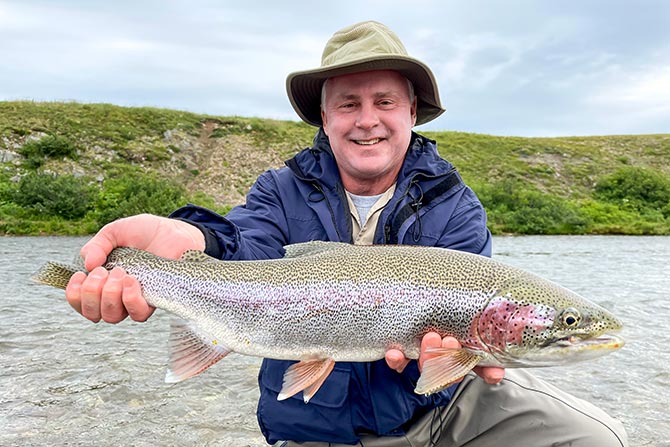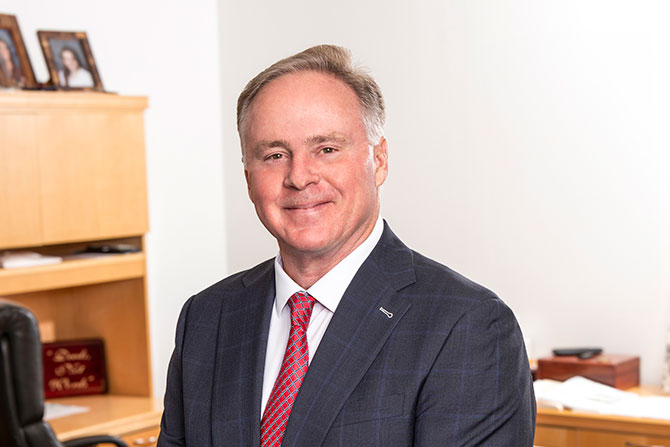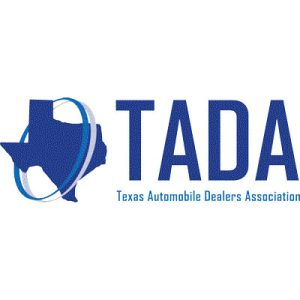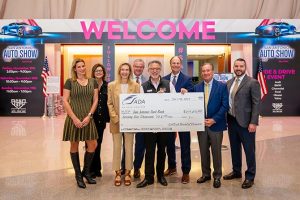Bryan Case has been in the auto industry and a member of TADA for 40+ years. His years of experience and steady approach to business have prepared him well to serve as the 2024 chair and lead the association forward this year.
TADA recently sat down with Bryan to learn more about him, his years in the Texas auto industry and his goals as chair. We enjoyed getting to know him and appreciated the time he gave us. The following are excerpts from our conversation.
What are the biggest issues facing the industry today?
I think one of the biggest problems is affordability. Consumers are faced with the reality that vehicles have consistently gotten much more expensive. With current interest rates and the fact that wages have not kept up, it’s made it tough for some consumers to buy a vehicle versus what that same vehicle would have cost a decade ago.
Another pressing issue we continue to deal with is excessively burdensome federal regulation and oversight of our business and industry. A good example of this is the EV rollout that is happening in our country. The government has been trying to mandate this change politically, which has never happened before in the history of our country. They’re attempting to pick winners and losers in a free enterprise system. It’s causing a lot of stress for dealerships, the franchise system and the manufacturers.
For the most part, our state has great regulations on the books and is ready to help our industry and businesses succeed. But we need to make sure that the current leaders do their part in enforcement of those rules, fairly and uniformly.
How will the industry change in the next 3‑5 years?
I think we’re going to see a continued consolidation of both private and public entities. Also, a market correction is inevitable when it comes to EV mandates — a large number of consumers simply won’t buy them or want them until some of the major issues surrounding EVs are resolved. I am confident that, given time, this issue will work itself out.
Why is the franchise system still the best way to sell cars?
The biggest advantage of the franchise system is that it fosters a competitive market and ultimately it leads to lower transaction prices for consumers. Additionally, consumers receive better service because dealers live in individual markets. They are invested in the business; their blood, sweat and tears have gone into building it. They are there to take care of the customers day in and day out. Customers are their neighbors; they might go to church together or shop in the same grocery store. The opportunity to build relationships is there in everyday life. The manufacturer isn’t a part of the local community; they can’t give that level of attention.
Dealers don’t want to sell you one car; they want to sell you every car. They’re going to take care of you and treat you differently. That’s why I love the car business; it’s all about building good relationships.
What goals do you have as chair to address these and other issues and lead the association forward?
In the state of Texas, our state legislature has a session every other year, which is kind of unique. A lot of states do it every year, and 2024 is going to be a year without a session for us. My number one goal is to ensure that TADA is in a position to be successful in the 2025 legislative session. I intend to do this by meeting with and educating as many lawmakers as possible — focusing on the positive role that Texas dealers play in the state and their local markets.
If you live in a certain market and you represent that market as a legislator, you most likely know at least one car dealer, if not more. It’s easy to understand the impact that dealers make in the local markets. As employers, auto dealers help families keep a roof over their heads and food on their table. According to NADA, in 2022, our industry employed 216,000 Texans.
Dealers are pillars of their communities. Without them, many needs would go unfulfilled. As someone who contributes to local charities and is involved in different activities in my local market, I can see how important it is to support the local community. Dealers unfailingly go above and beyond to assist nonprofits, schools, teachers, sports, veterans, humane societies, the homeless and so many more! These efforts are not just financial; many volunteer hours are given by dealerships and their employees.
The financial impact that car dealers contribute towards state coffers as far as the amount of taxes we collect helps legislators. In 2022 alone, $7.2 billion of state tax revenue was collected.
By educating legislators about all the good we do, I hope to find commonality and build strong relationships that will position our industry well into the future.
What help do you need from members to accomplish those goals?
I am asking individual dealers across the state to reach out to their local and state representatives as well as their local senators. It’s not enough just to have a voice; you’ve got to actually go out and make contact and build a relationship with these people and talk to them. I’m not a person who’s really outgoing, but I have found that most legislators want to talk to you; they want to hear what you think and what’s on your mind. They are very receptive, particularly when you can explain your position and give them reasons why supporting our industry is in their best interest.
One of the things I’ve found as a past Legislative Chair and then also on being on the Legislative Committee is that it is immensely easier to talk to legislators in an off year in their markets. If you try to talk to them during a session at the Capitol, they’ll certainly talk to you, but they’re busy; they’ve got a million things going on. Whereas if you can catch them back at home and sit down with them over a cup of coffee and take them through your store, it is much easier to build a relationship.
What do you see as the benefit of being a TADA member?
I think that one of the benefits of being a TADA member is it gives dealers a platform where we have a unified voice that can be heard in the state legislative process. Membership also gives you access to a wealth of knowledge. The staff and their years of experience in our industry are unmatched. They are always happy to help when asked.
How did you get into the auto industry?
I was born in Austin and grew up just outside of Austin, in Elgin. My family had a ranch; we raised cattle and horses and did some farming as well. It was a very blessed way to grow up. I didn’t realize that at the time because it was a lot of hard work.
After high school, I left home to attend college. My goal was to get a degree in electronic science, which was a budding field at that time. I ended up getting a part-time job working at a car dealership as a mechanic.
Growing up on the ranch, we had to do a lot of our own mechanical work, keeping our equipment, tractors and balers running. Because of that, I was mechanically inclined, and the new job was a perfect fit at the time. That was in the very early 80s when electronics were just being introduced into automobiles. Because I was going to school for electronics, everybody thought I was a genius. But it was just that I was going to school and was familiar with the technology. It was good timing.
I started off in the service side of the business. It is an unusual career path as far as becoming a general manager and then eventually an owner from where I started. I feel like it was an advantage because it gave me a lot of insight into one of the most important parts of the business. It’s hard to understand what goes on back there if you’ve never done it. Most dealers come up through the sales side, and that’s the normal career track.
Have you had any mentors?
One of my most influential mentors was Ken Ruddy. He taught me the most about the car business. Ken was a man of honor and integrity. His word was like a binding, signed contract, even if details changed later and maybe the deal wasn’t good for him. If he told you that was what he was going to do, he did it, and I deeply respected that. Ken cared about his employees, their families and what was going on in their lives. For an anniversary, he’d send flowers to you and your wife, or if you lost a loved one, he’d be there at the funeral. Ken was known for acts of kindness.
He and I forged a close relationship. I felt like he was almost my second father — not to take away from my father, I have a great father, and I love him very much — but Ken helped out in some areas where I maybe needed a little more growing.
Herman Muray was the one who gave me my first break — the opportunity to get into management. I never forgot that. We had a close friendship and stayed lifelong friends until his passing just a couple of years ago.
In the 80s when I became a department head, Mike Spagle mentored me on the finer points of financial management of a department and accounting. He was very patient with me. He’d come to the store on the evenings and weekends and spend his personal time teaching me. He gave me the resources I needed to succeed. I owe him a great deal of gratitude.
When you mentor others, what are three pieces of advice you would share?
- There are no shortcuts to doing things the right way. If you’re going to do something, take the time and do it right.
- Take care of the customers. Every business makes mistakes, no matter how hard you try to be perfect. The difference between a great business and a good business is how you treat the customer and how you handle mistakes.
- Take care of your employees. I try to be involved with my employees — to know what’s going on, if they are having a good day or if there is something going on with their family, a sick child or whatever it might be. Employees need to know that you care. I also want to know what their goals are. Everybody can’t always get what they want when they want it, but you can help those people who are worthy and put forth the effort to try to achieve their goals. In other words, pay it forward.
Tell us about your family.
My beautiful wife and best friend, Tammie, supports me in all my endeavors. I have five amazing children. My two oldest sons, Bryan Jr. and Benjamin are involved in the business, running stores for me. I also have two daughters, Kennedy and Sydney, and my youngest son, Austin. We have five adorable grandchildren as well.
What do you like to do when you’re not working?
I like fly fishing, particularly in Alaska. And then my most consistent hobby is being a private pilot. I like general aviation, and I fly whenever I get the chance. I like to challenge myself and learn new things all the time.
